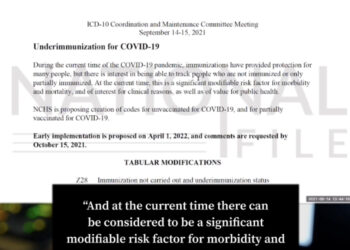Last Updated on February 17, 2022
Andy Ngo is quickly becoming public enemy number one among rabid leftists and their radical ilk in the journalistic field.
We’re just over two weeks out from the release of his bestseller, “Unmasked,” and yet the only review released among mainstream publications is the exhaustingly disdainful screed from purported journalist Alexander Nazaryan. Written like a mean girl’s entry in a burn book, I’m genuinely curious if the contents of Ngo’s work were even thoroughly examined. That such a venomous response would find its way in a once-reputable paper is no surprise. “Unmasked” comes across as a work that would be odious to the middling minds that dominate the media today. If one thing should be apparent about Ngo’s book at this point it’s this: the left is absolutely terrified that you might read it.
One would think that covering the rise of a revolutionary political movement marked by blood lust and indiscriminate violence would be uncontroversial, yet here we are. Despite the advice from his mentors to do otherwise, Ngo followed his intuition to a beat that many are unwilling to cover. It almost cost him his life. And it continues to cost him his peace of mind, security, and public reputation.
“Unmasked” is the culmination of his exhaustive effort to investigate the rise of antifa on American soil. This reporting belies the widespread assertion that these revolutionaries are merely a right-wing fiction. A far cry from the alarmist that others in the press claim him to be, Ngo takes care to abstain from conjecture and exaggeration. We met briefly a few years back, something fairly commonplace given our professions. He came off as a humble person with a sense of professional integrity and in my mind this book affirms that initial impression. In reading through this work, his assessment is firmly grounded in his findings.
A gripping and digestible read from start to finish, readers are offered a glimpse into Antifa’s philosophical underpinnings, its historical roots, and the anti-fascist iterations among other western nations. Beyond the book’s capacity to expose the American public to the truth about the Antifa’s nature, breadth, and influence is another critical facet of its content: Ngo not only reveals their involvement in the Black Lives Matter riots that rocked the nation in 2020, he also disabuses readers of the race-baiting narratives promoted in the mainstream. In short, this book makes clear that the American public has been deceived.
The press expects readers to look into the spinning black and white vortex of their words, “antifa is not real”…“America is systemically racist”… “capitalism is white supremacy.” In hearing these ongoing regurgitations, the public is expected to disregard of the violence and racial radicalization that continues to plague our nation. Narrative supersedes thoroughgoing investigation because, after all, exposure to the unvarnished truth might compel average Americans to begin thinking for themselves.
In the afterword, Ngo describes his parent’s deprivations, persecution, and eventual escape from Vietnamese communists to the U.S. His personal history offers insights into the purpose and inspiration for his work: to shed light on those revolutionary forces that pose a credible threat to our freedoms and way of life.
His findings are a keen reminder that, in the course of human history, liberty, security, and the rule of law are in fact the exception, not the rule. Far from the right-wing ideologue that his critics make him out to be, his work evinces what strikes me as a straightforward desire for freedom and peaceable relations among citizens that live within a pluralistic society.
The last section of his book, titled “A Message to Antifa,” readers will find an unexpectedly candid missive that’s absent of the mockery, hubris, and contempt that so often suffuses the writings of the left.
His assertive reiteration of antifa’s threat to the nation is tempered by a show of grace and sympathy for those that have been duped into fighting for its deformed ideology. He recognizes the humanity of those on the left, a courtesy that so few of his opponents have been willing to offer in return.





















